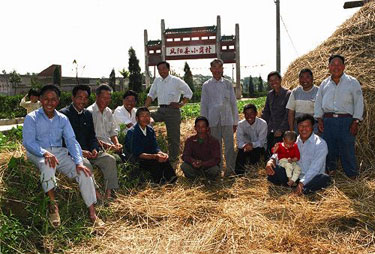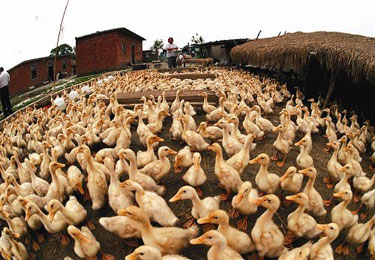With the rural reform policies that followed, Xiaogang villagers began to enjoy a much better life. Allocating farmland to each household fired local enthusiasm for agriculture production. All farmland, some abandoned for years, was cultivated, and the years of starvation gradually ended. "I have five children. My family used to live a poverty-stricken life in old tumble down thatched cottage with doors made of straw. In 1993, we moved into a brick house. We had money to purchase farm machines, watches and a TV set," said Yan.

Despite the great improvement in their standard of living, the residents of Xiaogang are still far from wealthy. "I spent all my family's income to pay various taxes years after we contracted some 3 hectares of farmland. Then, from 1990, young people started heading to cities in order to work as migrant workers," Yan said.
Unfortunately Xiaogang didn't capitalize on its first-mover advantage. The area never developed the factories that could offer higher-paying jobs, and transportation remains poor.
But Xiaogang began to show new vigor when a group of new village leaders such as Yan Deyou came to the forefront. In 1997, Yan Deyou, the Xiaogang Village Party branch secretary, visited Changjiang Village in Zhangjiagang City, Jiangsu Province and gained useful experience. A road was completed in Xiaogang with financial support from Changjiang. With more help from Changjiang, Xiaogang residents began to grow grapes and develop other industries.
"We were the first to implement the family contract responsibility system, but later we missed out on other opportunities for further development. Now agricultural taxes are canceled, and farmers receive 30 yuan per mu (15 mu = 1 hectare) in subsidies from the government. We really appreciate that. But individual farming is no longer generating prosperity. We need to combine forces to create a more efficient economy," Yan stated.

(China.org.cn by Wu Nanlan, March 6, 2008)